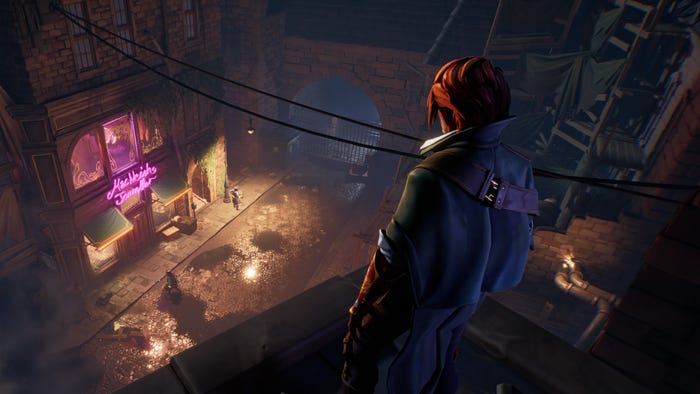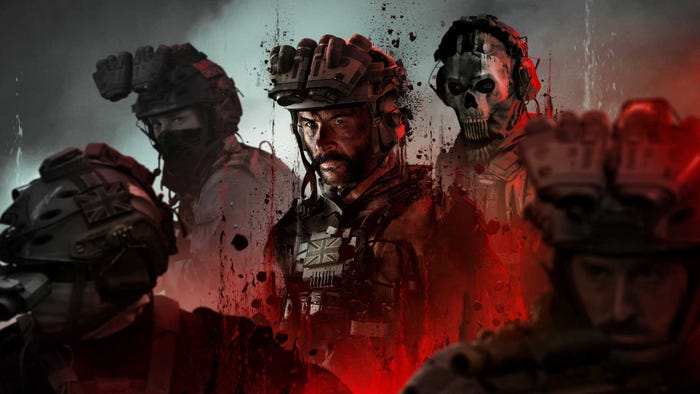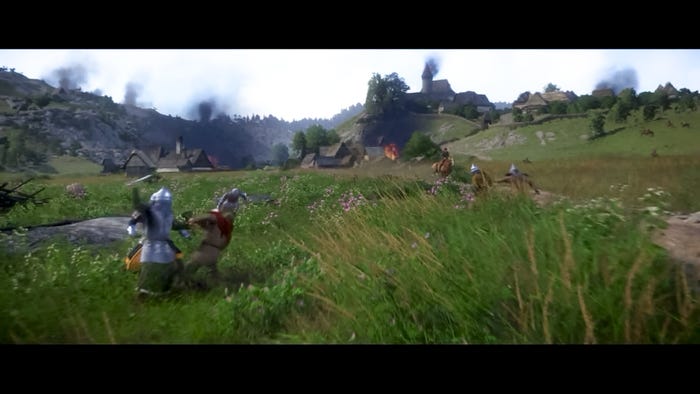Philip Goetz's <a href="http://gamasutra.com/features/20060823/goetz_01.shtml">recent Gamasutra article</a> named 'Too Many Clicks! Unit-Based Interfaces Considered Harmful' has already created massive discussion forum threads and multiple Letters To The

Philip Goetz's recent Gamasutra article named 'Too Many Clicks! Unit-Based Interfaces Considered Harmful' has already created massive discussion forum threads and multiple Letters To The Editor and weblog posts - we reprint the best here. The intro to Goetz's piece explains: "Computer games traditionally have a player control one or more units on the screen. In early games, each player controlled one unit. As CPU power grew, players controlled more and more units. Today, a player might have hundreds of units, each one of which they must control individually. The unit-based user interface (UI) is no longer sufficient. This article will suggest a different way of thinking about UIs, and will discuss how to compare one UI to another, or one UI to the theoretical maximally efficient UI, to tell if your game can be improved." In response to this, a detailed Letter To The Editor from Tim Carter, who comments: "It is ironic that there is, indeed, a great deal of abstraction in the legacy thinking hard-coded into strategy game design, though little abstraction occurs today - something today's developers seem to have forgotten. Those "little soldiers" you see in most RTS games are *symbols* - yet everyone seems to have forgotten that (which indicates how little critical thought goes on in mainstream game design). You don't think those 20 infantry "units" that man the borders of your continent-spanning civilization represent 20 individual soldiers do you? The term "unit" means "group" in real-world terms - only in computer games does it refer to "one guy"." A number of the other Letters To The Editor also make interesting points, with Troy Nelson noting: "If my empire is being assaulted by a hoard of rebel scum in the north quadrant while I'm dealing with an insurrection in the south I want to have the necessary info in a consolidated fashion. Then, in like manner, I want to issue consolidated directives to (what I hope are) a handful of capable ministers or subordinates who have been properly prepared in the school of experience. If they can't perform I want to be able to replace them at an appropriate time in an appropriate manner (the blade of an assassin comes to mind)." However, not all respondents were delighted with Goetz's article - 'Flash Of Steel' weblogger Troy Goodfellow includes a detailed rebuttal of the piece that explains: "Goetz’s critique is derived from the “rule of seven”, a military stricture holding that the most efficient way to handle orders is through a series of subgroubs (platoons, battalions, divisions) with no more than seven of any group. Orders are filtered down to identical groups, each of which carries out the task assigned it. For Goetz, UIs make too many demands on players because they are asked to click too much. Allowing computer automation of some of these tasks is a losing proposition, he says, because the most successful players will always be those who can do it all manually. He refers to it as “bad money chasing out good”, which I don’t understand since it’s the good players chasing out the bad. Plus, it is hardly relevant in a game like Civ III, which is almost entirely non-competitive and single player. His solution isn’t one at all, or at least not one that I can wrap my feeble brain around." There is also an exceptionally long thread on the article at tech site Slashdot, somewhat confused by the submitter calling Civilization an RTS - the CivFanatics website also has detailed feedback, with a commenter noting: "In further iterations of the game, I hope that the design team will construct a UI that involves delegation. This delegation could be managed far better than merely "Automate workers." Rather, there could be varying AI's that represent different advisors/senators/generals/etc. which could be hired, fired, appointed, elected, could be loyal, disloyal, could mutiny, share information with one another, or try to maintain control of their "own realm," could come up with their own strategies that stray from (improve upon?) your plan." One common theme throughout the discussion is that the recently launched Civilization IV handles unit management much better than Civ III, which is the example used in the article - in fact, the director of marketing at Firaxis has kindly offered Philip a copy of Civ IV so he can try it for himself! Gamasutra will follow up with any final article feedback next week, if necessary.
About the Author(s)
You May Also Like









